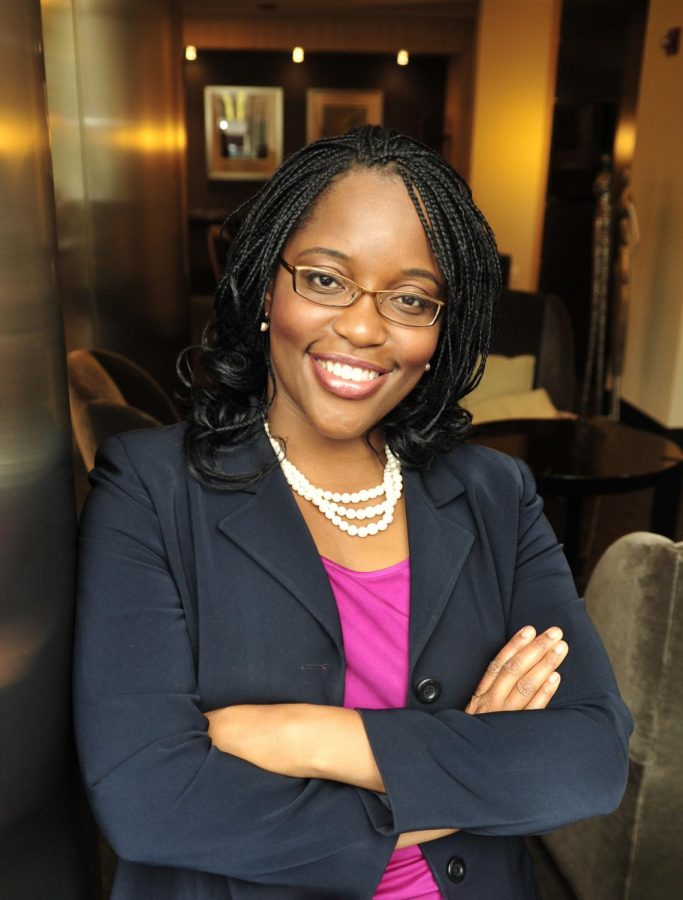Breakfast speaker honors MLK
Dr. Michelle Asha Cooper spokes about the importance of looking at issues through a racial lens.
January 23, 2019
AACC’s annual Martin Luther King Breakfast offers an important moment to reflect on the civil rights leader’s accomplishments, the president of the Institute of Higher Education Policy told attendees on Jan. 21.
Dr. Michelle Asha Cooper spoke about the importance of looking at issues through a racial lens.
In a pre-speech interview with Campus Current, Cooper said, “It’s an important time to honor [King’s] legacy and [reflect on] how we see that legacy coming to life in our community, and how people are working to sustain that vision.”
Cooper said government-sanctioned racial discrimination has ended, but vestiges of segregation are still visible in wage gaps, social services and criminal justice.
In the school system, she said, she sees a lack of faculty diversity as well as offensive mascots and images.
“We still have work to do,” she said.
The theme of this year’s breakfast, Realizing the Dream: The Time is Now, served as the backdrop for the event. To realize King’s dream, Cooper said, the audience can follow the examples of the community members the event honored who work to improve juvenile justice and foster care, among other things.
Cooper said she works to improve college access to students of color and working-class students.
“We are really trying to look at policies with a lens that is equity minded,” Cooper said of the Washington, D.C.-based Institute for Higher Education Policy, where she is president. “Thinking about how we … use our platform to really overturn … long-standing inequities that we see in the higher education system.”
Where race relations tie in with education, Cooper said she focuses on issues of access to quality colleges and shining a light on invisible minorities, such as students who are incarcerated or undocumented, who also deserve a fair and proper education.
Cooper said students shouldn’t have to struggle in order to benefit themselves as well as society.
Cooper also said she urges colleges to be transparent and reveal if and how they help their students when it comes to those issues.












